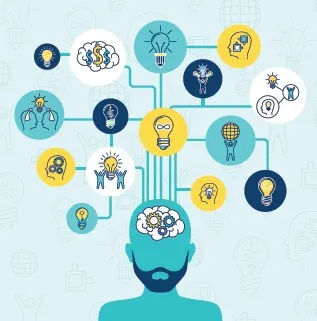The new National Education Policy (NEP 2020) which became effective from July 2020 aims to see India a “Global Knowledge Superpower” and “Skill Hub”. Besides the focus on entrepreneurship, job skill development (hard skills), technical knowledge and vocational training, it also recommends imparting crucial soft skills or life skills to graduate learners in higher educational institutions (HEIs).
The latter are in fact critical for national human development and will prove very instrumental for the holistic development of under graduate students for effective/ethical learning and better/benevolent earning (ELBE).
In short ELBE will promote development and inculcation of human values, self-awareness, self-recognition, ethics, morality, discipline, empathy, benevolence, reverence, decisiveness, communication, time management, resilience, emotional betterment, mental health, psychological health, problem solving, conflict reduction, stress management, responsible and ethical use of digital technology and internet, valuing peer learning and team work, planning, improved relationships, and above all it will improve the social interactions and promote the symbiotic nature of teacher – student relationship.
Thus, ELBE must be the core of curriculum planning for every course and programme at every level in a HEI, because we are witnessing derailment of core life values and moral education among the student community on a larger scale due to scores of factors including the familial, societal and institutional.
Therefore, UGC has endorsed and recognised Life Skills (Jeevan Kaushal) as pillars of holistic development to be learnt and practiced throughout lives and a life is thus meaningful only with an individual, family and social skill that ultimately determines the status of an individual life, no matter what is the job or economic status of an individua isl. Because the aim of the life is not only just to survive, but to thrive.
Thus, the rationale of these draft guidelines on life skills (Jeevan Kaushal) is “Integral human well-being, relationship with family, institution, society and the environment”.
Although family is the first school in modelling human behaviours, HEIs assume significant role to nurture and impart life skills education amongst its learners to fulfil its social and societal responsibilities.
As these skills are not confined to a text-book, but can be learned and developed over time by nurturing through experiences, observations, and interactions.
Life skills have been recognised by world level organisations as the pillars of human development and according to WHO, “The abilities for adaptive and positive behaviour that enable individuals to deal effectively with the demands and challenges of everyday life are the Life Skills”. Similarly, the UNICEF has defined life skills as “A behaviour change or behaviour development approach designed to address a balance of three areas: Knowledge, Attitudes, and Skills”.
The UGC Jeevan Kaushal guidelines begins with a beautiful quote “Life is the greatest teacher but to learn from life we require skills”. Therefore, skill is pivotal to learning and without a skill every course, programme or certificate or diploma or degree is meaningless, unless and until it does not empower a learner with a specific life skill (a combination of cognitive, personal and inter-personal abilities that enables an individual to deal effectively and sustainably the life challenges). Pertinently, in 2019 and then in 2021 UGC first time developed facilitators guidelines for life skills to infuse the spirit of social responsibility in the UG curriculum, but it couldn’t materialise properly as HEIs failed to evolve course/s on it.
Definitely, after the launch of NEP 2020 in the country, skilling (both hard and soft) has assumed much significance in terms of its integration in mainstream or traditional education, which was, other wise separated from it. Thus, Jeevan Kaushal 2.0 guidelines are a refined curricular framework in tune with the spirit of NEP 2020 and contains four separate modules on Communication Skills, Professional Skills, Leadership and Management Skills and Universal Human Values.
These draft guidelines can be found at: https://www.ugc.gov.in/guidelines.aspx. It is proposed to be covered as a two-credit course across the disciplines in a HEI with the following objectives: –
• Identify common communication problems that may be holding learners back;
• Perceive what the non-verbal messages are communicating to others;
• Understand the role of communication in the teaching-learning process;
• Learn to communicate through the digital media;
• Understand the importance of empathetic listening;
• Explore communication beyond language.
The expected outcomes as envisioned by UGC are that a learner shall be able to get a clear understanding of good communication skills, and know what they can do to improve their life skills.
The four separate Life Skill modules/courses in these draft regulations have been designed to ensure that the graduate learners are equipped to handle their personal, interpersonal, and professional lives holistically irrespective of their discipline and institution.
Therefore, lets know that these courses shall be deemed equivalent to ‘foundational courses’ and shall be offered across disciplines in an institution to empower students with self-expression and self-reliant qualities.
Thus, we must realise its need and importance in institutional and non-institutional settings in lieu of the challenges and social problems faced by today’s youth and come up with its inclusion in the institutional curriculum and brand every HEI as a life skill education imparting, enhancing and empowering centre and strengthen the institutional and societal linkage.
By doing this, we can ensure the promotion of psycho-social abilities, psycho-physical health, healthy behaviour and increased self-confidence amongst our student community.
The writer is a faculty of Zoology at Islamia College of Science and Commerce (Autonomous), Srinagar.






